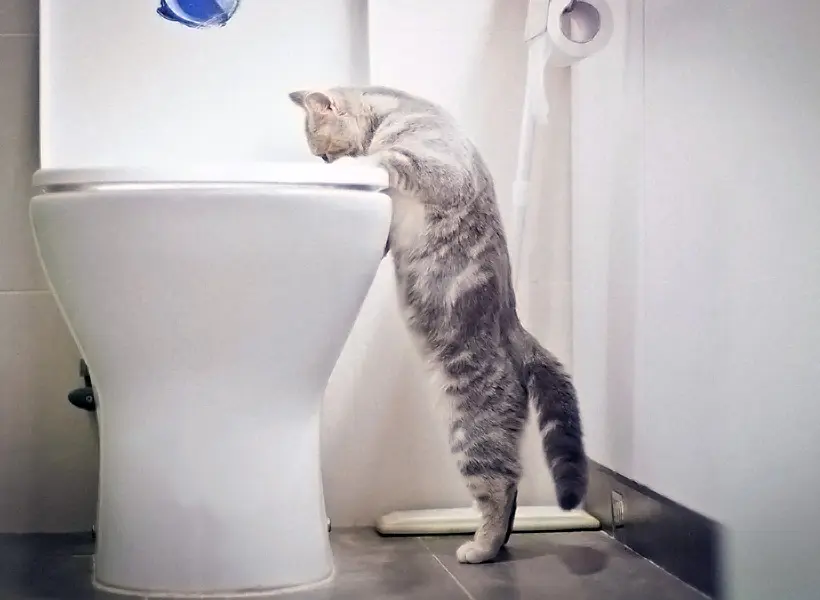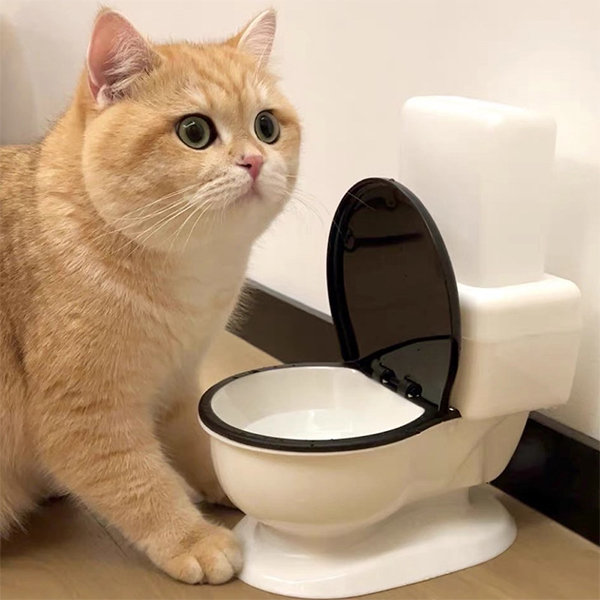Reasons Flushing Cat Poop Down Your Toilet May Cause Problems - Recommendations for Proper Handling
Reasons Flushing Cat Poop Down Your Toilet May Cause Problems - Recommendations for Proper Handling
Blog Article
The article which follows pertaining to Don’t flush cat feces down the toilet is exceedingly attention-grabbing. Read it for yourself and see what you think of it.

Introduction
As feline owners, it's vital to bear in mind just how we dispose of our feline pals' waste. While it may seem convenient to purge feline poop down the commode, this method can have harmful repercussions for both the setting and human health.
Ecological Impact
Purging cat poop presents harmful microorganisms and parasites into the water supply, posing a substantial threat to aquatic ecosystems. These pollutants can negatively influence marine life and compromise water top quality.
Health Risks
In addition to ecological concerns, flushing cat waste can likewise present health risks to people. Cat feces may contain Toxoplasma gondii, a parasite that can trigger toxoplasmosis-- a possibly extreme health problem, particularly for expectant females and people with damaged body immune systems.
Alternatives to Flushing
Thankfully, there are much safer and a lot more accountable methods to dispose of feline poop. Consider the adhering to alternatives:
1. Scoop and Dispose in Trash
The most usual method of disposing of feline poop is to scoop it right into a biodegradable bag and throw it in the garbage. Make sure to utilize a devoted clutter inside story and throw away the waste quickly.
2. Usage Biodegradable Litter
Opt for naturally degradable feline clutter made from materials such as corn or wheat. These litters are eco-friendly and can be safely disposed of in the trash.
3. Bury in the Yard
If you have a backyard, think about hiding feline waste in a marked area away from vegetable gardens and water sources. Make sure to dig deep adequate to avoid contamination of groundwater.
4. Install a Pet Waste Disposal System
Invest in a pet garbage disposal system particularly made for pet cat waste. These systems utilize enzymes to break down the waste, decreasing smell and environmental effect.
Conclusion
Responsible pet possession prolongs beyond providing food and shelter-- it likewise involves appropriate waste administration. By avoiding purging pet cat poop down the commode and choosing alternate disposal methods, we can reduce our environmental footprint and secure human wellness.
Why You Should Never Flush Cat Poop Down the Toilet
A rose by any other name might smell as sweet, but not all poop is created equal. Toilets, and our sewage systems, are designed for human excrement, not animal waste. It might seem like it couldn’t hurt to toss cat feces into the loo, but it’s not a good idea to flush cat poop in the toilet.
First and foremost, assuming your cat uses a litter box, any waste is going to have litter on it. And even the smallest amount of litter can wreak havoc on plumbing.
Over time, small amounts build up, filling up your septic system. Most litter sold today is clumping; it is made from a type of clay that hardens when it gets wet. Ever tried to scrape old clumps from the bottom of a litter box? You know just how cement-hard it can get!
Now imagine just a small clump of that stuck in your pipes. A simple de-clogger like Drano isn’t going to cut it. And that means it’s going to cost you big time to fix it.
Parasitic Contamination
Believe it or not, your healthy kitty may be harboring a nasty parasite. Only cats excrete Toxoplasma in their feces. Yet it rarely causes serious health issues in the cats that are infected. Most people will be fine too if infected. Only pregnant women and people with compromised immune systems are at risk. (If you’ve ever heard how women who are expecting are excused from litter cleaning duty, Toxoplasma is why.)
But other animals may have a problem if infected with the parasite. And human water treatment systems aren’t designed to handle it. As a result, the systems don’t remove the parasite before discharging wastewater into local waterways. Fish, shellfish, and other marine life — otters in particular — are susceptible to toxoplasma. If exposed, most will end up with brain damage and many will die.
Depending on the species of fish, they may end up on someone’s fish hook and, ultimately on someone’s dinner plate. If that someone has a chronic illness, they’re at risk.
Skip the Toilet Training
We know there are folks out there who like to toilet train their cats. And we give them props, it takes a lot of work. But thanks to the toxoplasma, it’s not a good idea.

Do you like reading up on How to Dispose of Cat Poop and Litter Without Plastic Bags? Place a remark down below. We will be delighted to hear your thoughts about this post. Hoping to see you back again soon. Are you aware of somebody else who is involved in the topic? Please feel free to share it. We enjoy reading our article about How to Dispose of Cat Poop and Litter Without Plastic Bags.
Request An Estimate Report this page